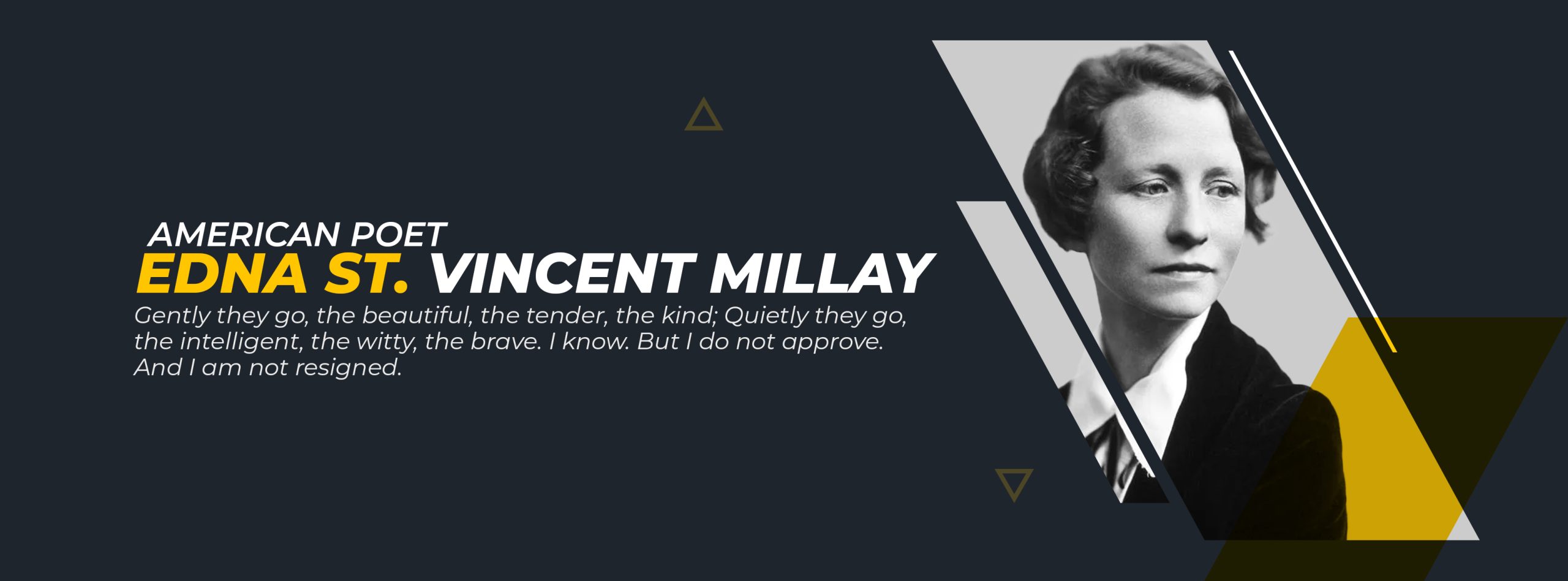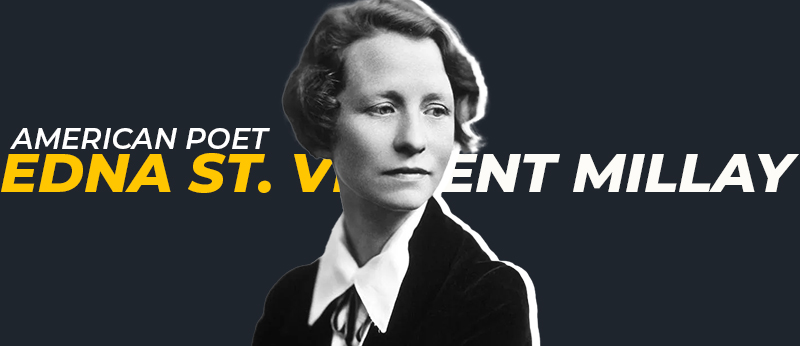Top 10 most inspiring quotes by Edna St. Vincent Millay
- They say when you are missing someone that they are probably feeling the same, but I don’t think it’s possible for you to miss me as much as I’m missing you right now
- Where you used to be, there is a hole in the world, which I find myself constantly walking around in the daytime, and falling in at night. I miss you like hell.
- I am glad that I paid so little attention to good advice; had I abided by it I might have been saved from some of my most valuable mistakes.
- Childhood is not from birth to a certain age and at a certain age. The child is grown, and puts away childish things. Childhood is the kingdom where nobody dies.
- After all my erstwhile dear, my no longer cherished; Need we say it was not love, just because it perished?
- It’s not true that life is one damn thing after another; it’s one damn thing over and over.
- Night falls fast. Today is in the past. Blown from the dark hill hither to my door Three flakes, then four Arrive, then many more.
- This book, when I am dead, will be A little faint perfume of me. People who knew me well will say, She really used to think that way.
- A person who publishes a book willfully appears before the populace with his pants down. If it is a good book nothing can hurt him. If it is a bad book nothing can help him.
- Gently they go, the beautiful, the tender, the kind; Quietly they go, the intelligent, the witty, the brave. I know. But I do not approve. And I am not resigned.

Edna St. Vincent Millay (1892–1955) was an American poet and playwright known for her exceptional contributions to modernist literature. Born in Rockland, Maine, Millay’s early talent for writing poetry was recognized, and she received a scholarship to attend Vassar College. Her first poetry collection, “Renascence and Other Poems,” published in 1912, garnered attention for its vivid imagery and lyrical depth.
Millay’s work often explored themes of love, individuality, and feminism, and she became a prominent figure in the Greenwich Village literary scene of the 1920s. Her poem “First Fig” and the collection “A Few Figs from Thistles” captured her unconventional and bold outlook on life and love. In 1923, she became the third woman to win the Pulitzer Prize for Poetry for her collection “The Ballad of the Harp-Weaver.”
Millay’s personal life was as colorful as her art, marked by numerous romantic relationships and a commitment to personal freedom. Her open bisexuality challenged the social norms of the time. She married Eugen Boissevain in 1923, and they enjoyed an unconventional yet enduring partnership.
Throughout her career, Millay penned sonnets, lyrical poems, and plays that showcased her emotional intensity and intellectual prowess. Her notable works include “Fatal Interview” and “Wine from These Grapes.” Edna St. Vincent Millay’s legacy continues to influence modern poetry with her innovative style, exploration of emotional depth, and commitment to individual expression.
👉Listen to the best music from all over the world at www.liveonlineradio.net #Edna_St._Vincent_Millay #quotes #FM #Online_radio #radio #live_online_radio #live #world_radio





